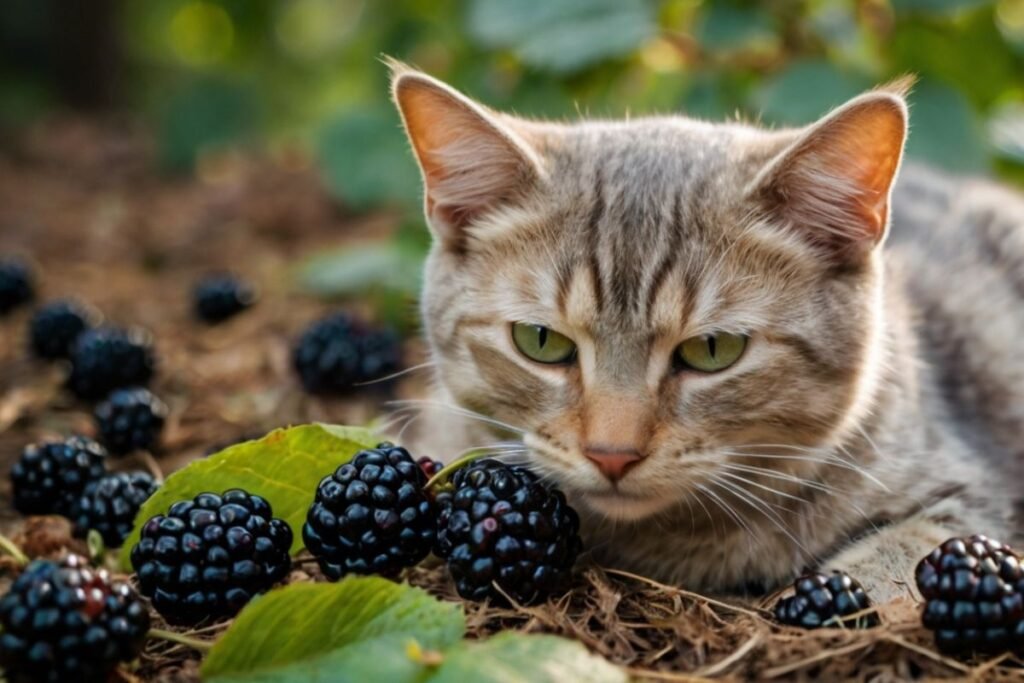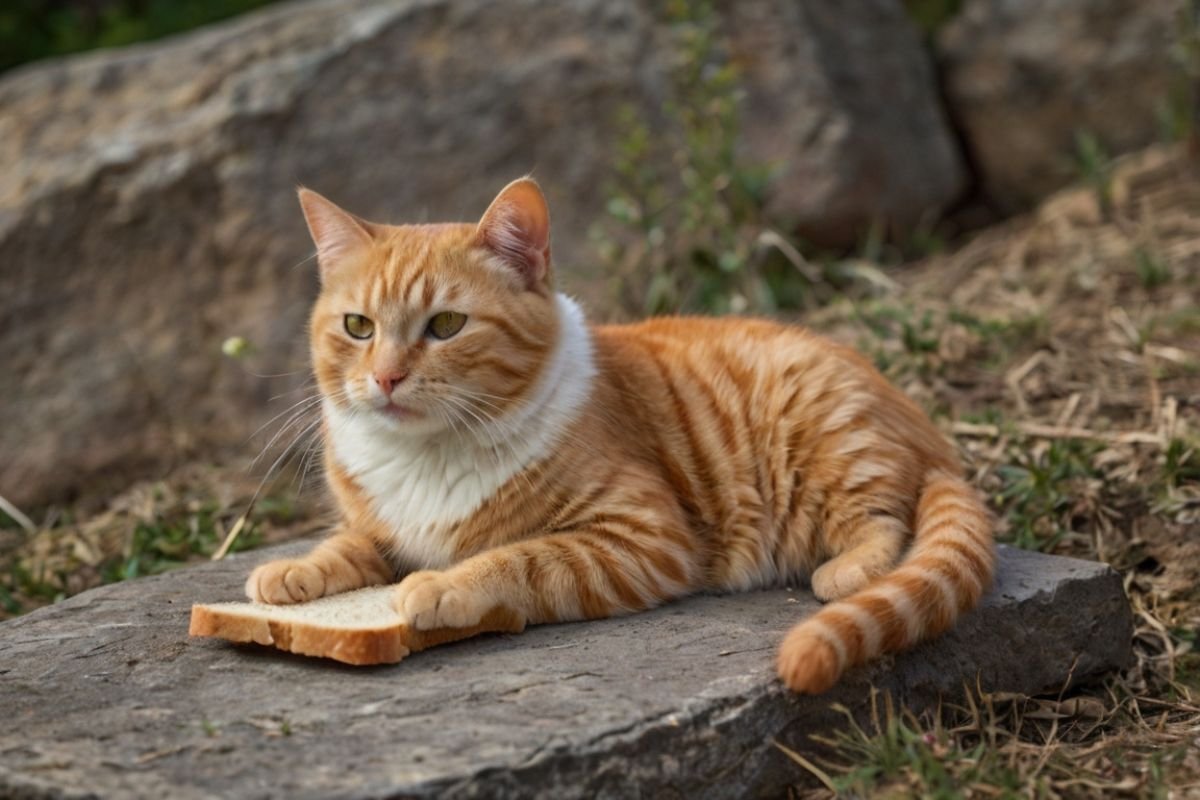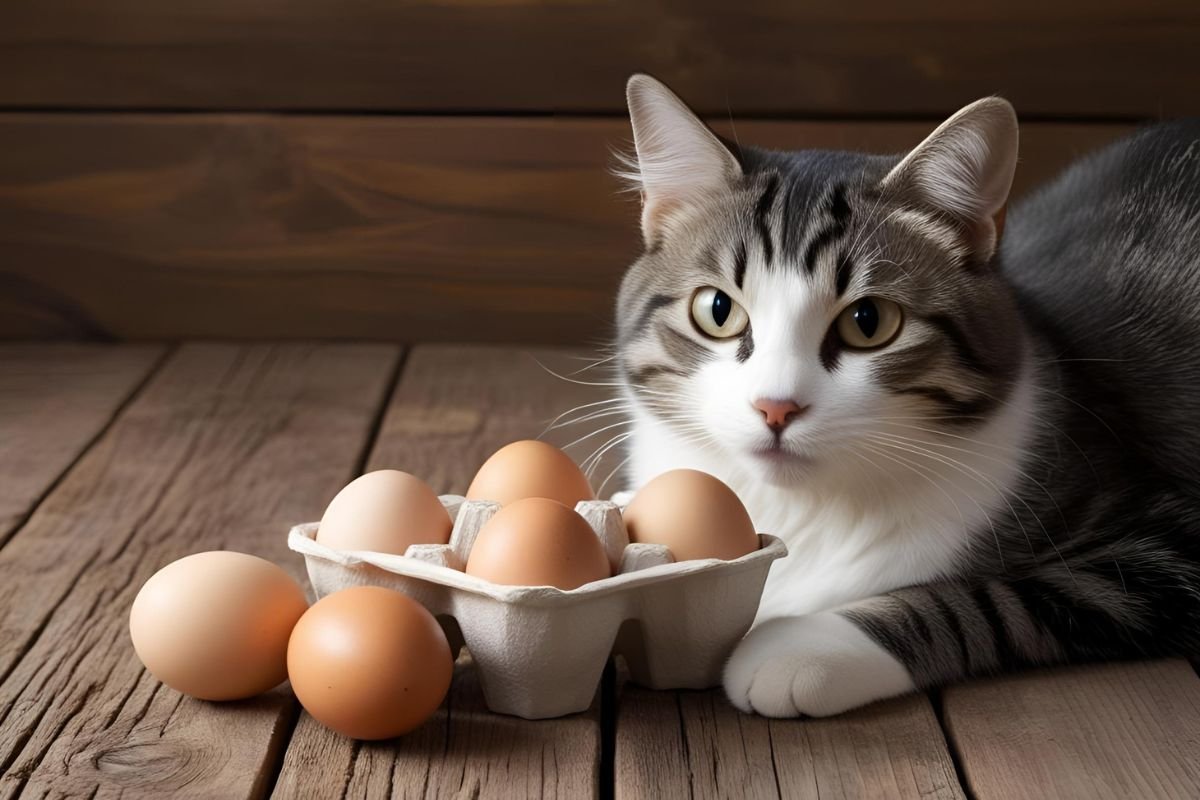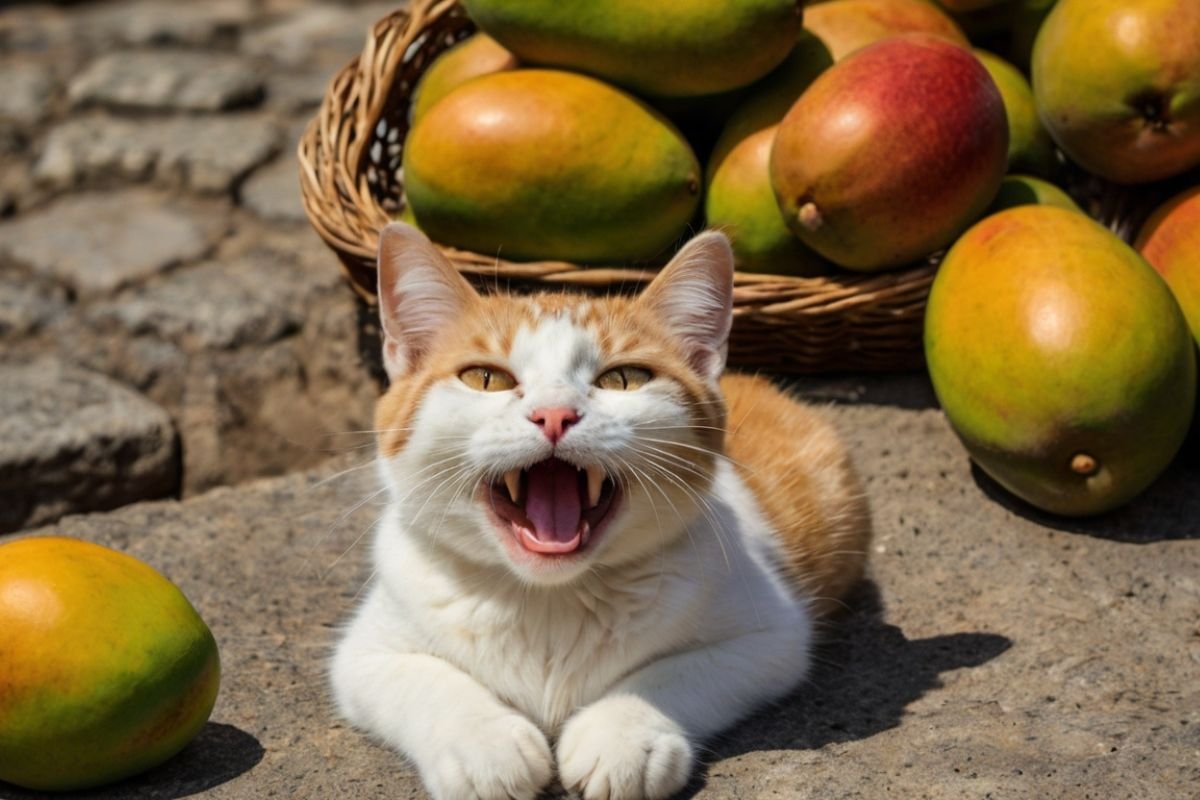One sunny afternoon, I was snacking on a bowl of fresh blackberries when my cat Rio—my two-year-old orange tabby—jumped up beside me, eyes wide with curiosity. He sniffed the berries and gave me that look. You know the one—half innocent, half mischievous. It made me pause and ask myself: Can cats eat blackberries?
If you’ve found yourself wondering the same thing, you’re in the right place. Cats are curious by nature, and we love to spoil them. But when it comes to sharing our food, it’s important to know what’s safe and what’s not. Some human treats can be healthy for them, while others can cause harm—even in small amounts.
In this blog post, we’ll explore everything you need to know about cats and blackberries. Are they safe? Are they healthy? What happens if your cat eats one? And what should you do next?
Let’s dive in—with short sentences, clear answers, and a whole lot of love for our feline friends.
Table of Contents
Why This Question Matters More Than You Think
First, let’s talk about why this matters. Our cats depend on us completely. They trust us to make good choices. Therefore, every food decision we make affects their health. This responsibility feels heavy sometimes. However, it’s also a privilege.
Many cat parents share this concern. In fact, pet poison control centers get thousands of calls yearly. Most calls involve food safety questions. So, you’re definitely not alone in wondering about blackberries.
Also read, Can Cats Eat Raspberry?
Understanding Your Cat’s Unique Dietary Needs
Before we dive into blackberries, let’s understand cats better. Cats are obligate carnivores. This term sounds fancy, but it’s simple. Basically, cats need meat to survive. Their bodies work differently than ours.
Unlike dogs or humans, cats can’t make certain nutrients. Instead, they must get these from animal tissue. For example, cats need taurine. This amino acid keeps their hearts healthy. Without it, cats develop serious problems.
Moreover, cats process food differently. Their digestive systems are shorter. This design works perfectly for meat. However, it struggles with plant matter. As a result, cats can’t break down many plant foods easily.
Think of it this way: A cat’s body is like a sports car. It’s built for one specific fuel type. You wouldn’t put diesel in a race car. Similarly, cats work best on their natural diet.
The Truth About Blackberries and Cat Safety

Now, let’s address the main question. Can cats eat blackberries? The short answer is yes. Blackberries won’t poison your cat. They’re non-toxic to felines.
But wait—there’s more to consider. Safe doesn’t always mean beneficial. Think about it like this: Water is safe for cats. However, too much water can cause problems. The same logic applies to blackberries.
When Rio first encountered a blackberry, I watched carefully. He sniffed it thoroughly. Then, he touched it with his paw. Finally, he walked away. This reaction taught me something important. Cats often know what’s right for them.
What Makes Blackberries Special?
Blackberries pack impressive nutrition. They contain vitamin C, which boosts immune systems. They also have vitamin K for blood clotting. Additionally, blackberries provide vitamin E, an antioxidant.
Furthermore, these berries contain important minerals. Manganese supports bone health. Folate helps with cell function. The deep purple color comes from anthocyanins. These compounds fight inflammation.
Fiber is another key component. It helps with digestion in many animals. However, cats need much less fiber than humans do.
Why Cats Don’t Need Berry Nutrition
Here’s something fascinating about cats. They make their own vitamin C. Unlike humans, cats don’t need dietary vitamin C. Their livers produce enough naturally.
This fact changes everything. While blackberries give us vitamin C, cats don’t benefit the same way. It’s like giving someone something they already have plenty of.
Moreover, cats get antioxidants from meat. High-quality cat food provides everything they need. Therefore, blackberries become more of a curiosity than a necessity.
Potential Benefits: Small but Present
Despite their carnivorous nature, cats might gain small benefits from blackberries. The antioxidants could help fight cell damage. This support might boost overall health slightly.
Additionally, the fiber might aid digestion. Some cats with constipation benefit from extra fiber. However, there are better fiber sources for cats.
The key word here is “might.” These benefits are theoretical for most cats. Your cat’s regular diet should provide everything needed.
Real Risks Every Cat Owner Should Know
While blackberries aren’t toxic, they can cause problems. Too many berries can upset your cat’s stomach. The extra fiber might cause diarrhea. Some cats also experience vomiting.
Another concern is choking. Whole blackberries are small but dense. Kittens especially might struggle with them. Even adult cats could have trouble.
Allergic reactions, though rare, can happen. Signs include itching, swelling, or difficulty breathing. If you notice these symptoms, contact your vet immediately.
Also, consider the sugar content. Blackberries contain natural sugars. While less than many fruits, it’s still sugar. Diabetic cats should avoid all unnecessary sugars.
Special Considerations for Different Cats
Not all cats are the same. Age, health, and size matter when considering any new food.
Kittens have sensitive digestive systems. Their bodies are still developing. Therefore, stick to kitten-specific foods. Avoid giving blackberries to cats under one year old.
Senior cats often have health issues. Kidney problems are common in older cats. Some fruits can worsen kidney disease. Always check with your vet first.
Diabetic cats need special attention. Even natural sugars can spike blood glucose. If your cat has diabetes, skip the blackberries entirely.
Overweight cats should also avoid them. Extra calories, even from healthy sources, don’t help weight loss.
How to Safely Offer Blackberries

If you decide to try blackberries with your cat, follow these steps carefully.
First, wash the berries thoroughly. Remove any pesticides or dirt. Organic berries are safer but still need washing.
Next, cut berries into tiny pieces. Remove any stems completely. Make pieces smaller than your fingernail.
Start with just one small piece. Watch your cat’s reaction closely. Some cats ignore new foods completely. Others might be curious.
Monitor your cat for several hours afterward. Look for any signs of stomach upset. If everything seems normal, you could try again later.
Remember, this should be rare. Think of it as an occasional tiny treat, not a regular snack.
My Personal Experience with Rio
Let me share Rio’s blackberry adventure in detail. It was a sunny Saturday morning. I was preparing breakfast when Rio jumped onto the counter.
He spotted my blackberries immediately. His whiskers twitched with curiosity. Those bright orange eyes locked onto the bowl.
I decided to try an experiment. First, I cut a tiny piece of blackberry. Then, I placed it on his usual feeding mat.
Rio approached cautiously. He sniffed the piece for nearly a minute. Next, he touched it gently with his paw. Finally, he picked it up and dropped it.
After all that investigation, he walked away. His body language said, “Thanks, but no thanks.” This reaction taught me something valuable about respecting cat preferences.
Better Alternatives for Treating Your Cat
Instead of blackberries, consider these safer options. Small pieces of cooked chicken work wonderfully. Make sure there’s no seasoning or bones.
Commercial cat treats are designed specifically for felines. They provide nutrition cats actually need. Plus, they come in flavors cats love.
Cooked turkey is another excellent choice. Remove all skin and seasoning first. Cut into tiny, manageable pieces.
Some cats enjoy freeze-dried meat treats. These maintain nutritional value while providing interesting textures.
For cats who crave plant matter, try cat grass. Many pet stores sell special grass for cats. It’s safe and provides fiber they might need.
Catnip is another plant-based option many cats adore. It’s completely safe and provides mental stimulation too.
Understanding Cat Behavior Around Food
Cats have unique relationships with food. Unlike dogs, they’re naturally cautious about new items. This caution probably kept their ancestors alive.
In the wild, cats learn food safety from their mothers. Domestic cats rely on us for this guidance. Therefore, our food choices matter tremendously.
Many cats prefer familiar foods. They might reject anything new, regardless of safety. This behavior is normal and healthy.
Some cats, however, are more adventurous. They might try anything you’re eating. These cats need extra supervision around human foods.
Signs Your Cat Shouldn’t Have Human Food
Watch for these warning signs that indicate your cat should stick to cat food only.
Frequent vomiting after treats suggests a sensitive stomach. These cats do better with consistent diets.
Diarrhea is another red flag. It indicates digestive upset or food intolerance.
Excessive begging might seem cute but can indicate poor nutrition. Well-fed cats shouldn’t constantly seek human food.
Weight gain or loss also signals dietary problems. Sudden changes require veterinary attention.
The Science Behind Feline Nutrition
Let’s explore the science that makes cats special. Cats need certain amino acids that other animals can make themselves.
Taurine is crucial for heart function. Cats can’t produce enough naturally. Therefore, they must get it from food.
Arachidonic acid is another essential nutrient. It comes only from animal fat. Plants don’t provide this fatty acid.
Cats also need pre-formed vitamin A. Other animals can convert beta-carotene to vitamin A. Cats cannot do this conversion efficiently.
These requirements explain why cats thrive on meat-based diets. Plant foods simply can’t meet all their needs.
When to Consult Your Veterinarian
Always talk to your vet before major dietary changes. This advice is especially important for cats with health conditions.
If your cat has eaten many blackberries, call your vet. They can advise whether to worry or just monitor.
Cats showing any unusual symptoms after eating berries need professional evaluation. Don’t wait to see if symptoms improve.
Regular check-ups help catch dietary problems early. Your vet can recommend the best nutrition plan for your specific cat.
Creating a Balanced Approach to Cat Treats
Treats should never exceed 10% of your cat’s daily calories. This rule applies to all treats, not just blackberries.
High-quality cat food should provide 90% of your cat’s nutrition. Treats are for bonding and training, not nutrition.
Variety in treats can prevent boredom. However, introduce new items slowly and carefully.
Keep a food diary if your cat has sensitivities. Track what you feed and any reactions. This information helps your vet make better recommendations.
The Bottom Line on Cats and Blackberries
So, can cats eat blackberries? Yes, but should they? Probably not regularly.
Blackberries won’t harm most healthy cats in tiny amounts. However, they don’t provide significant benefits either.
Your cat’s regular diet should meet all nutritional needs. Blackberries are unnecessary additions that might cause more problems than benefits.
If your cat shows interest in blackberries, a tiny piece occasionally won’t hurt. Just remember to prepare it safely and monitor for reactions.
Most importantly, respect your cat’s preferences. If they’re not interested, don’t force it. Cats often know what’s best for their bodies.
Final Thoughts from a Fellow Cat Parent
As Rio’s parent, I’ve learned that simple is often better. Cats thrive on routine and consistency. While variety can be fun, it’s not essential for feline happiness.
The bond between you and your cat doesn’t depend on sharing your food. Instead, it grows through play, affection, and consistent care.
Focus on providing the best possible cat food you can afford. Spend money on high-quality nutrition rather than exotic treats.
Remember, every cat is different. What works for Rio might not work for your cat. Pay attention to your cat’s individual needs and preferences.
Most importantly, enjoy your relationship with your feline friend. Whether they eat blackberries or not, they love you unconditionally. That’s what really matters.
The next time you’re enjoying blackberries and your cat shows interest, you’ll know exactly what to do. You can make an informed decision based on your cat’s health, age, and preferences.
Trust your instincts as a cat parent. You know your cat better than anyone else. When in doubt, stick to cat-specific foods and treats.
Your cat is lucky to have someone who cares enough to research their nutrition. That dedication makes you an excellent cat parent, blackberries or no blackberries.

Shahriar Robin is the creator of WhatPetsCanEat.com, a passionate pet lover and dedicated cat dad to Rio, a curious two-year-old orange feline who inspired this website. With a love for animals and a knack for research, Shahriar shares trusted, easy-to-understand information to help fellow pet owners make safe, healthy food choices for their furry friends.


